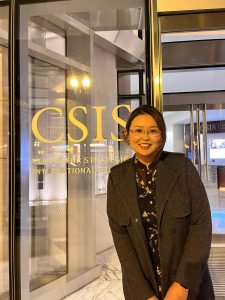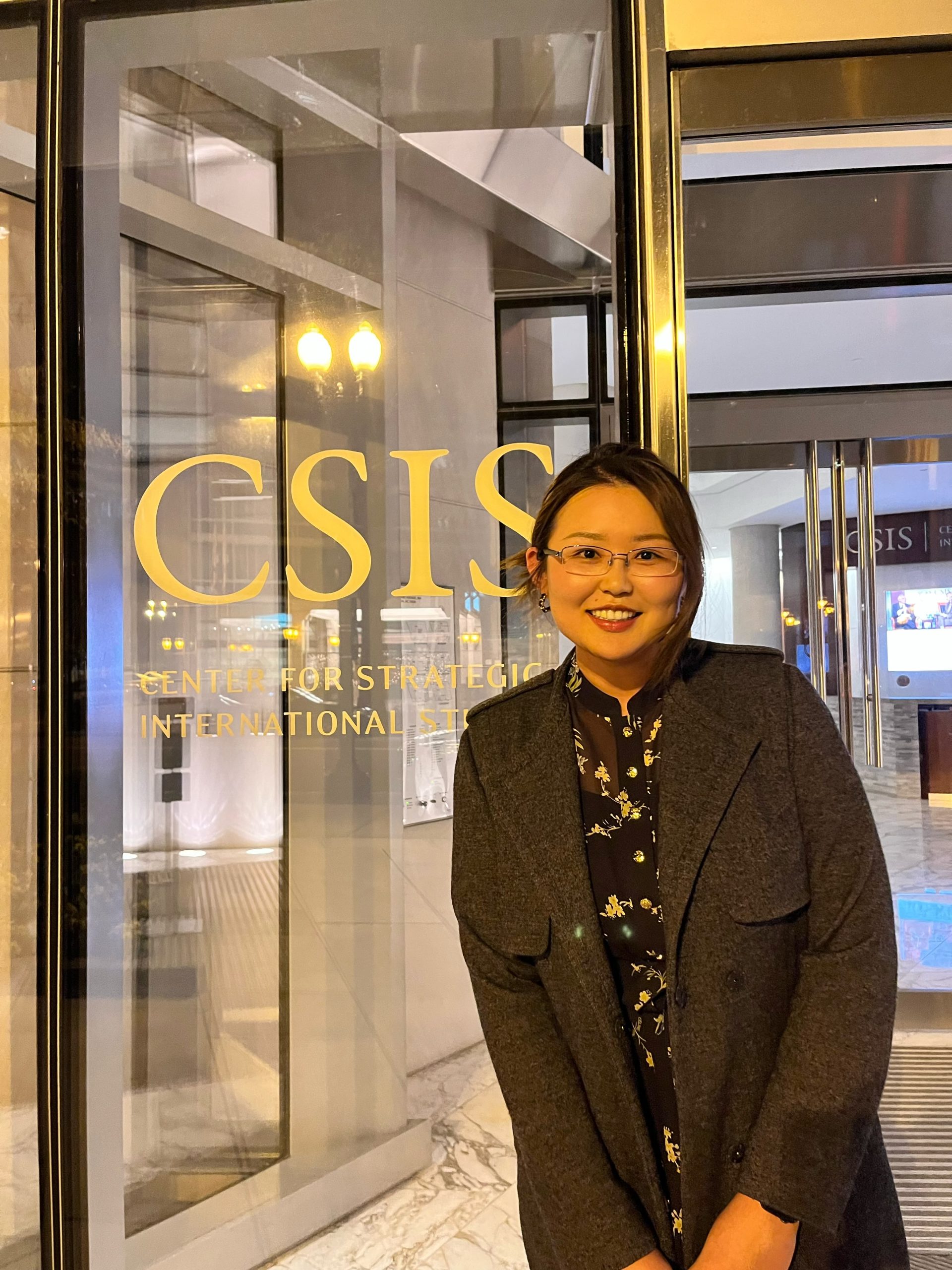Alumni Spotlight: Maya Qin Mei (MASIA ’21)

What year did you graduate and what was your area of concentration?
I graduated in May 2021, and I concentrated in security and politics.
Please tell us about yourself. What led to your interest in Asian Studies?
I went to Occidental College, a liberal arts college in LA, and majored in International Relations. My program was very theory-focused, so I wanted to find a more practical grad program that could help me better understand how IR politics actually works, particularly in the Asia-Pacific region. Looking through many different grad programs, I believed Georgetown School of Foreign Service was the best since it offered a great core curriculum, world-class faculty with people coming from the government, and a wonderful SFS network. Luckily I was able to join MASIA.
What was your time like in and after MASIA?
As a MASIA student, I worked as Professor Evan Medeiros’ Research Assistant and an editor for the Asian Studies journal. I also did three off-campus internships through the Curricular Practical Training (CPT) program as an international student from Macau. I interned at the Wilson Center’s Kissinger Institute on China and the United States, Center for Strategic and International Studies’ (CSIS) China Power Project, and Eurasia Group.
MASIA has a great connection with CSIS since many professors work there, such as Dr. Victor Cha and Dr. Michael Green and many MASIA students have interned there as well, so my classmates and I have all been interacting with CSIS a lot while we were at MASIA. I think having this network was very helpful to me in getting an internship and eventually my first job in DC at CSIS.
After graduating in 2021, I joined CSIS as a research associate at the Trustee Chair in Chinese Business and Economics program, where I conducted quantitative and qualitative research on Chinese economy and business environment, as well as the US-China trade relationship. After being with the CSIS Trustee Chair for more than two and a half years, I recently made a switch from the think tank industry to the private sector. I joined Bridgewater Associates as a China analyst of their Government Policy Team (working for a Hoya, actually! Hoya Saxa!). My work involves researching critical developments in Chinese policy that may impact markets, economies, geopolitical relationships, and the global political economy. I just started there and can’t wait to expand my skills. I definitely wouldn’t have come this far without MASIA.
So how did the Asian Studies program at Georgetown University prepare you for the challenge?
The network and access to information that MASIA provided me were very helpful. Before coming to DC I didn’t know anything about how think tanks work or their hiring processes. MASIA did a very good job of introducing me to this new world. I was able to use the MASIA network to connect with people in the industry. SFS professors and classmates were all very helpful.
MASIA also offered me very good training in practical skills. Beyond the textbook knowledge, I learned things like memo writing, specifically the NSC style memo, which is very precise and short. I used the memos I wrote for course assignments as writing samples for pretty much every job I applied to. MASIA also taught me how to conduct policy document analysis, which is what I’m doing at my current job. Besides that, I took a Data Analysis for Regional Studies class. As someone who comes from a qualitative analysis background, taking this class was very helpful. I learned about how to use Stata to conduct data analysis and visualize data and how to make sense of the data analysis section in other people’s research. Moreover, I got to put this class on my resume as proof that I have those skills. Most of the think tank RA jobs won’t require you to go beyond advanced Excel, but knowing how to use at least one statistical analysis software is very helpful. Taking this class also made it a lot easier for me when I taught myself how to use data visualization software for my CSIS job.
What advice would I give to current and prospective students?
First, think thoroughly when you choose your area of concentration. MASIA gives you a lot of freedom and you get to try things that you are interested in. Don’t worry too much if you choose something that you realize is not right for you. You can always take classes from other concentrations or even from other programs. I took some classes from the MSFS program and the Government Department. I highly encourage everyone to plan out the courses they want to take ahead of time since some popular courses are only offered in the fall semester. Go try different classes, especially those that are out of your comfort zone. They can help you to expand your perspective of the world and develop interesting new angles for research.
Second, I would encourage everyone to do as many extracurricular activities as possible, whether being an RA, TA or doing internships as they will help you to grow beyond your coursework. I think this is especially helpful for international students. If you’re looking for a job in the field of International Relations, your language skills are very important. It is not that easy to prove to people that you have an almost native-level language skill unless you have relevant experience. I would say if you have experience working as an RA or TA or editor of a journal, it proves that you have research skills, language skills, and copy editing skills. DC think tanks really appreciate those skills and having them will help you stand out from other applicants.
Third, I recommend everyone to go to the Career Center regularly. I think you can come back to the Career Center even after you graduate. A lot of other schools don’t give you that. I always go back to update my resume and talk to career coaches for advice. You can also reach out to other alumni through the Career Center. They have a lot of very good activities such as Jumpstart January, when you can listen to alumni from different industries sharing their experiences.
Most importantly, enjoy your time at MASIA. We have a smaller program so you get to be close to your advisor, other faculty members, and your cohort. Since most of your classmates will be working in DC, you can still maintain a good friendship with them after you graduate and that’s valuable. I hope you can make the most out of your time at MASIA and have fun!

